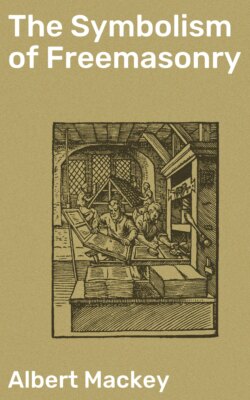Читать книгу The Symbolism of Freemasonry - Albert Mackey - Страница 10
На сайте Литреса книга снята с продажи.
Footnotes
ОглавлениеTable of Contents
1 ↑ The satirical pen of Aristophanes has not spared the Dionysiac festivals. But the raillery and sarcasm of a comic writer must always be received with many grains of allowance. He has, at least, been candid enough to confess that no one could be initiated who had been guilty of any crime against his country or the public security.--Ranae, v. 360–365.--Euripides makes the chorus in his Bacchae proclaim that the Mysteries were practised only for virtuous purposes. In Rome, however, there can be little doubt that the initiations partook at length of a licentious character. "On ne peut douter," says Ste. Croix, "que l'introduction des fêtes de Bacchus en Italie n'ait accéleré les progrès du libertinage et de la débauche dans cette contrée."--Myst. du Pag., tom. ii. p. 91.--St. Augustine (De Civ. Dei, lib. vii. c. xxi.) inveighs against the impurity of the ceremonies in Italy of the sacred rites of Bacchus. But even he does not deny that the motive with which they were performed was of a religious, or at least superstitious nature--"Sic videlicet Liber deus placandus fuerat." The propitiation of a deity was certainly a religious act.
2 ↑ Hist. Greece, vol. ii. p. 140.
3 ↑ This language is quoted from Robison (Proofs of a Conspiracy, p. 20, Lond. edit. 1797), whom none will suspect or accuse of an undue veneration for the antiquity or the morality of the masonic order.
4 ↑ We must not confound these Asiatic builders with the play-actors, who were subsequently called by the Greeks, as we learn from Aulus Gellius (lib. xx. cap. 4), "artificers of Dionysus"--[Greek: Dionysiakoi technitai\].
5 ↑ There is abundant evidence, among ancient authors, of the existence of signs and passwords in the Mysteries. Thus Apuleius, in his Apology, says, "Si qui forte adest eorundem Solemnium mihi particeps, signum dato," etc.; that is, "If any one happens to be present who has been initiated into the same rites as myself, if he will give me the sign, he shall then be at liberty to hear what it is that I keep with so much care." Plautus also alludes to this usage, when, in his "Miles Gloriosus," act iv. sc. 2, he makes Milphidippa say to Pyrgopolonices, "Cedo signum, si harunc Baccharum es;" i.e., "Give the sign if you are one of these Bacchae," or initiates into the Mysteries of Bacchus. Clemens Alexandrinus calls these modes of recognition [Greek: sôthêmata], as if means of safety. Apuleius elsewhere uses memoracula, I think to denote passwords, when he says, "sanctissimè sacrorum signa et memoracula custodire," which I am inclined to translate, "most scrupulously to preserve the signs and passwords of the sacred rites."
6 ↑ The Baron de Sainte Croix gives this brief view of the ceremonies: "Dans ces mystères on employoit, pour remplir l'âme des assistans d'une sainte horreur, les mêmes moyens qu'à Eleusis. L'apparition de fantômes et de divers objets propres à effrayer, sembloit disposer les esprits à la crédulité. Ils en avoient sans doute besoin, pour ajouter foi à toutes les explications des mystagogues: elles rouloient sur le massacre de Bacchus par les Titans," &c.--Recherches sur les Mystères du Paganisme, tom. ii. sect. vii. art. iii. p. 89.
7 ↑ Lawrie, Hist. of Freemasonry, p. 27.
8 ↑ Vincentius Lirinensis or Vincent of Lirens, who lived in the fifth century of the Christian era, wrote a controversial treatise entitled "Commonitorium," remarkable for the blind veneration which it pays to the voice of tradition. The rule which he there lays down, and which is cited in the text, may be considered, in a modified application, as an axiom by which we may test the probability, at least, of all sorts of traditions. None out of the pale of Vincent's church will go so far as he did in making it the criterion of positive truth.
9 ↑ Prolog. zu einer wissenshaftlich. Mythologie.
